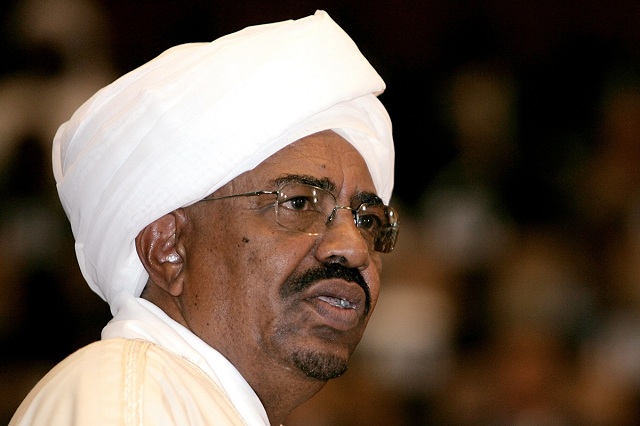Sudanese president Omar Al-Bashir claimed that Egypt occupied the triangle of Halayeb and Shalateen when Sudan was busy fighting rebellions in the south of Sudan. Al-Bashir added in statements to the Qatari newspaper Al-Sharq that the “Egyptian occupation” was a stab to the back.
Al-Bashir accused the Egyptian media outlets of abusing Sudan despite the historical strength of the Egyptian-Sudanese relations, claiming that Sudan deals patiently with this situation. Also, he pointed out that Sudan helped Egypt in its war against Israel in 1967 and hosted Egypt’s students of military colleges, and handed over a whole military base to Egypt in addition to opening the Sudanese air space to the Egyptian air force.
The Sudanese president expressed his rejection to the idea of declaring war on Egypt, and he talked about the possibility of taking the dispute over Halayeb and Shalateen to the International Court of Justice.
Halayeb and Shalateen is a triangle of around 20,000 square kilometres, located at the Egyptian-Sudanese Red Sea border. Conflict over the area began in 1958, following the demarcation of borders between the two countries shortly after Sudan gained its independence.
In October 2016, Egyptian president Abdel Fattah Al-Sisi invited his Sudanese counterpart to Cairo to attend festivities, marking the anniversary of the 1973 Arab-Israeli War and to bestow on him the star of Sinai, the highest military medal in Egypt.
In April, the Sudanese government deposited with the UN Security Council the coordinates of the baselines from which its maritime areas are measured, including the Halayeb and Shalateen triangle.
A week ago, Egypt announced its rejection and refusal to recognise any Sudanese base points north of the international border between Egypt and Sudan at 22 N, according to a statement issued by the Ministry of Foreign Affairs on Saturday.
Relations between Egypt and Sudan had been strained since 1995, after the attempt on the life of then-Egyptian president Hosni Mubarak in the Ethiopian capital, Addis Ababa, which Egypt accused Sudan’s government of facilitating.
Also, relations between Cairo and Khartoum have suffered since July 2013, when former president Mohamed Morsi was ousted from power. In the past couple of years, multiple other issues have amplified tensions between the two countries.


